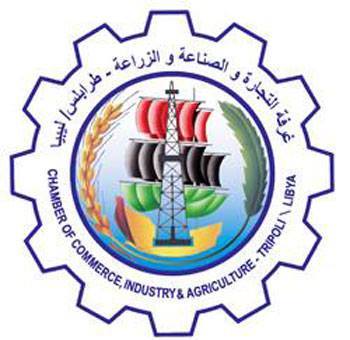Libya’s state National Oil Corporation (NOC) reported yesterday that a delegation of private sector companies operating in the oil sector, in coordination with the NOC and the Committee for the Localisation of Oil Field Equipment (CLOFE) of the Ministry of Industry and Minerals, organised a visit yesterday to the Sbea Industrial Complex, affiliated with the Military Industrialization Organization (MIO).
The MIO, it will be recalled, was established under the Qaddafi regime in 1978 and was part of the late dictator’s failed attempt to manufacture weapons.
During the visit, the delegation was briefed on the MIO’s manufacturing and technical capabilities, particularly in the areas of manufacturing mechanical equipment and spare parts used in certain industries, particularly the petroleum industry.
The visit also included a field tour of several departments and workshops affiliated with the MIO, during which the guests were briefed on the manufacturing and production stages and were introduced to the equipment used in implementing various maintenance operations and industrial projects.
At the end of the tour, the delegation held a meeting with officials from the MIO, during which the parties discussed prospects for future cooperation, stressing the importance of supporting local industries and developing partnerships between national institutions to contribute to the localization of some industries and reduce dependence on imports.
The NOC reports that it was praised for its role in providing the opportunity for private oil companies to enhance their role in the oil industries and for contributing to building bridges of communication with the major industrial institutions owned by the Libyan state and discussing ways of cooperation to ensure the success of the oil industries localization programme.
Commenting on the visit, the MIO said the visit reflects its efforts to build an integrated national industry and strengthen the concept of partnership between state institutions and their vital sectors, under the slogan: “Towards a National Industrial Renaissance”.
Committee for the Localisation of Oil Field Equipment (CLOFE)
It will be recalled that Committee for the Localisation of Oil Field Equipment (CLOFE), which was established jointly between the Ministry of Industry and Minerals and the Ministry of Oil and Gas, has been seeking to establish a local manufacturing sector that would locally manufacture some products used by the oil and gas sector.
The rationale for the policy
The rationale for this aim has multiple drivers. First, there is the aim to exploit existing manufacturing capacity that had cost the Libyan state hundreds of millions of dollars and has been lying idle for decades. This includes millions worth of unused CNC equipment.
For example, the Applied and Engineering Research Agency of the Ministry of Defence owns several CNC (Computerized Numerical Control) electronic blacksmithing turning machine workshops that can manufacture many spare parts, equipment, and tools.
Using this idle manufacturing equipment would in turn manufacture some products for the Libyan oil sector which is estimated to import about US$ 2 to 3 billion worth on spare parts a year on normal operations.
Besides saving the sector and Libya hard currency imports, the localisation of manufacturing for the oil sector will also have wider benefits such as diversifying the sources of national GNP, lowering the cost of production of a barrel of oil, create jobs for youth, university leavers, and the unemployed, and help transfer knowhow and technology.
Will the policy succeed?
It is, however, unclear if the policy will succeed. There are too many – open or hidden – conflicting vested interests between the NOC, Ministry of Oil and Gas, the Ministry of Industry and Minerals and the Military Industries Organisation. All parties want to own the new initiative even though none of them can succeed on their own.
Unless the PM takes over the policy initiative and makes it a strategic initiative and a Cabinet Office policy – like several of his initiatives – it is probably not going to take off.
Is the equipment too old?
There are also reasonable questions about the age of the equipment. For a start, Libya is not a manufacturing country and there is no manufacturing eco-system. There are no major manufacturing clusters of equipment and all that the sector needs on a wider level to operate.
There is a food manufacturing sector making/packing flour, semolina, couscous, pasta, sugar, tomato paste, cooking and olive oil, rice, biscuits, milk, yogurt, ice cream, fruit juice, soda drinks etc. This sector is also exporting, mostly to sub-Saharan Africa.
Finally, much of this equipment has been sitting idly unused since the Qaddafi regime. Much of it has become obsolete in its efficiency and productivity. A decision will have to be made as to whether it will be cheaper to import the equipment it is meant to manufacture.
Seeking private and public sector domestic and international investors
The ultimate test is if the Libyan state authorities can attract private sector investors into utilising this equipment to manufacture a commercially viable product. Since at least 2023, CLOFE has been speaking to both potential public and private sector investors in Libya and abroad – so far without success.
.
Italian business delegation to Libya in 2024 to discuss investment in localisation of oil industry
Workshop on Localisation of Renewable Energies in Oil and Gas Sector Companies held
Workshop on ‘‘Localization of the Oil Materials and Equipment Industry” held in Tripoli
Workshop on “The Future Vision for Localisation of Libyan Industry” (libyaherald.com)









